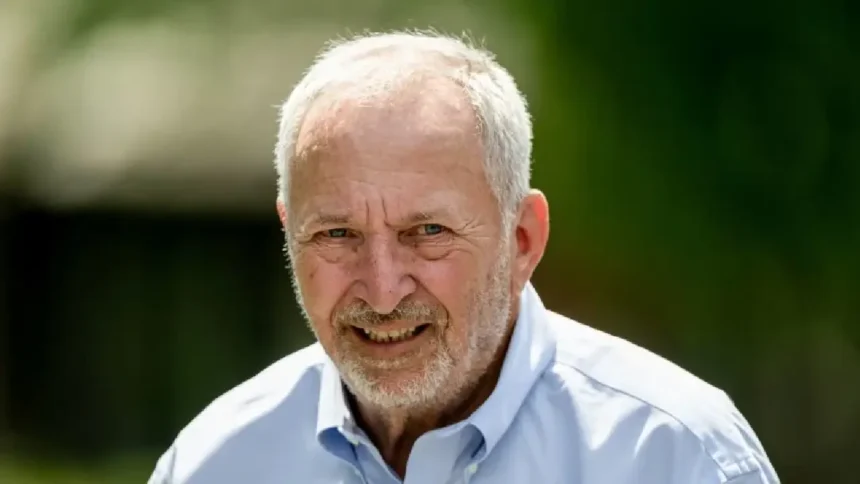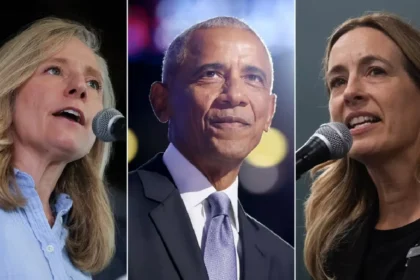Senator urges accountability after new details show Summers’ long-standing connection with Epstein
Sen. Elizabeth Warren (D-Mass.) is demanding that Harvard University sever its ties with economist Larry Summers in light of newly released emails that reveal a prolonged and deeply personal relationship between Summers and convicted sex offender Jeffrey Epstein.
- Senator urges accountability after new details show Summers’ long-standing connection with Epstein
- What the Emails Reveal
- Warren’s Reaction: “Monumentally Bad Judgment.”
- Response from Harvard and the Academic Community
- The Bigger Picture: Institutional Accountability and Ethics
- What Happens Next
- Final Thought
What the Emails Reveal
A cache of messages made public by a House committee shows that Summers and Epstein corresponded regularly from 2013 through early 2019. The content of the emails includes discussions about Harvard-related projects, global politics, and women — including some troubling personal and gender-biased commentary.
In one exchange, Summers appeared to jokingly suggest that women are less intelligent than men, a comment that has drawn sharp criticism. Other messages show Summers seeking Epstein’s advice on romantic matters and philanthropic undertakings — even after Epstein’s criminal convictions.
Summers also solicited Epstein’s help for a nonprofit founded by his wife, a Harvard English professor. Epstein eventually donated six-figure sums to that project.
Warren’s Reaction: “Monumentally Bad Judgment.”
Warren, a former Harvard Law School professor herself, has been vocal in her condemnation. She argued that Summers’s ongoing relationship with Epstein demonstrates “monumentally bad judgment” and questioned his fitness to mentor students or advise future leaders.
“If he had so little ability to distance himself from Epstein — even after Epstein’s crimes were publicly known — then Summers cannot be trusted with students, public policy, or institutions,” Warren said.
She called for Harvard to take decisive action, warning that Summers’s presence on campus undermines students’ trust in the institution and damages its reputation.
Response from Harvard and the Academic Community
Summer’s ties to Epstein have prompted a wave of criticism across Harvard’s faculty. Several professors described his prolonged and personal engagement with Epstein as deeply troubling. Some called it a “character flaw” rather than a one-off lapse.
Summers has acknowledged regret, calling his relationship with Epstein “a major error in judgment.” But many faculty argue that such an apology is not enough to address the broader ethical implications of his long-term relationship with a sex offender.
The Bigger Picture: Institutional Accountability and Ethics
Warren’s demand isn’t just about one individual — it raises broader questions about how elite institutions like Harvard handle relationships with powerful but morally compromised figures. Epstein’s donations to Harvard have long been a source of scrutiny, and Summers’s role in that network has renewed calls for transparency and stronger institutional ethics.
Some critics say the situation illustrates how academic prestige and financial clout can shield individuals from accountability, even when newly released evidence suggests repeated poor judgment.
What Happens Next
-
Harvard’s next move: The university now faces pressure to publicly respond to Warren’s demand, potentially by launching an internal review of Summers’s role and affiliation.
-
Reputational risk: If Harvard fails to act, it could face mounting backlash from students, alumni, and faculty who see this as a test of institutional integrity.
-
Political implications: Warren’s intervention elevates the issue to the national stage, tying academic misconduct to broader concerns about elite accountability and power.
-
Broader reforms: Observers say this controversy may spur other universities to more closely examine past associations with Epstein and reconsider how they vet donors and affiliated personnel.
Final Thought
Sen. Elizabeth Warren’s call for Harvard to “cut ties” with Larry Summers reflects an intensifying reckoning over longstanding relationships between powerful institutions and morally corrupt figures. As more details emerge from Epstein’s network, the pressure on Harvard — and on Summers personally — grows, forcing a deeper conversation about trust, legacy, and the cost of access.









